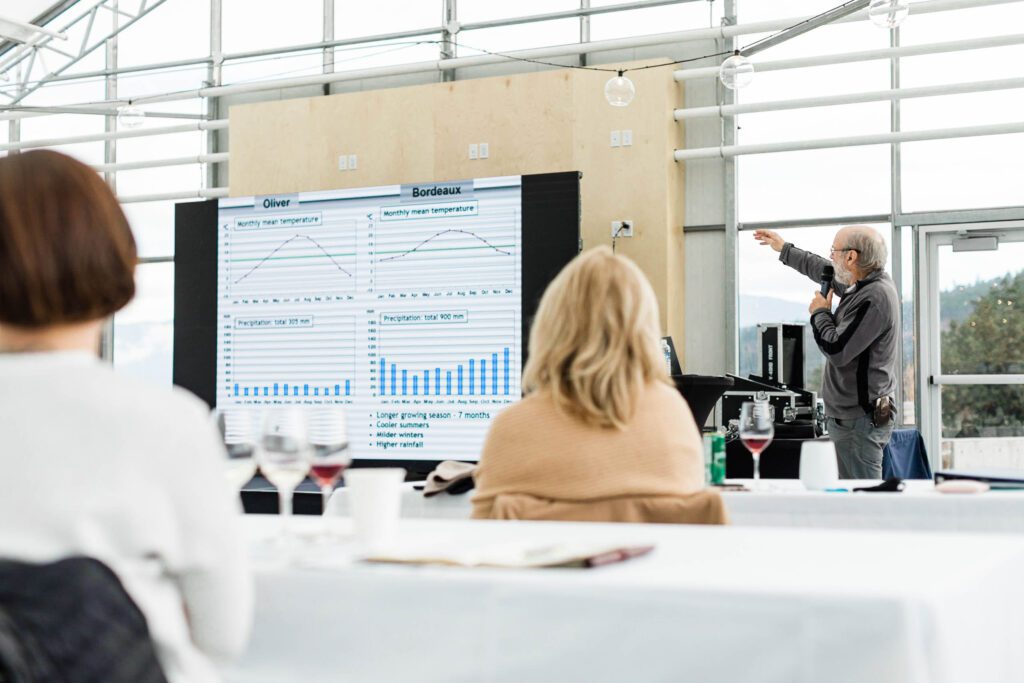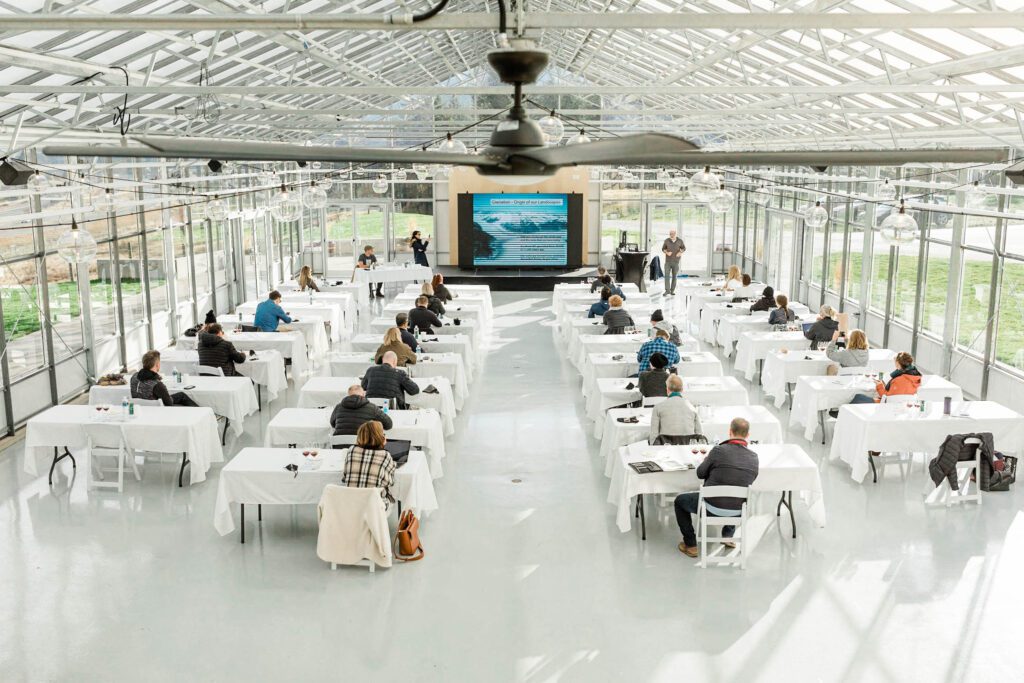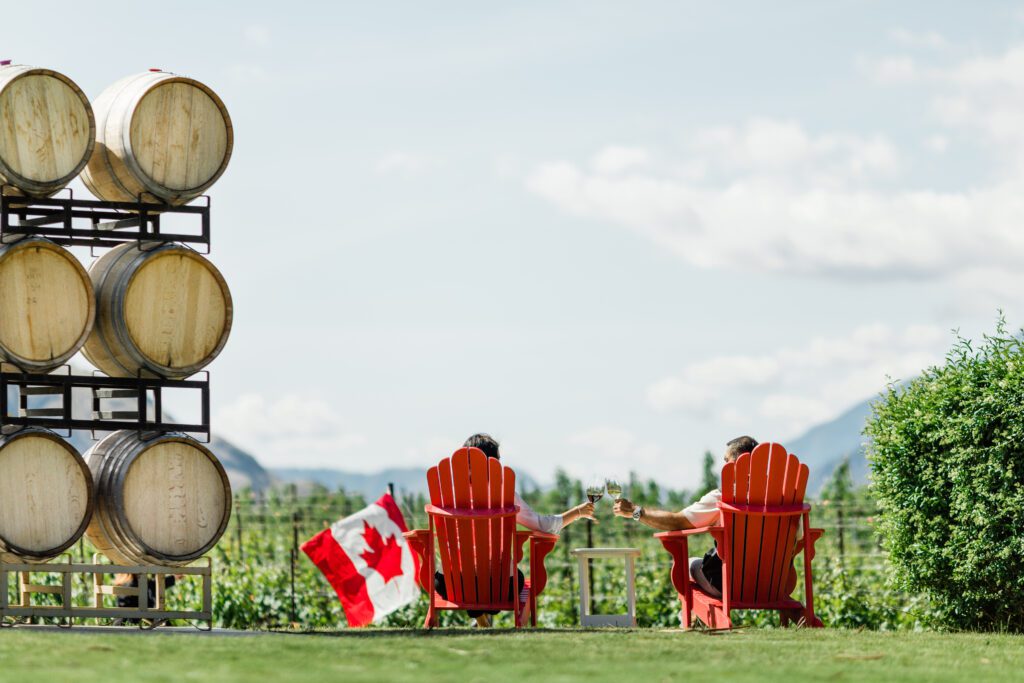Mandate: To accelerate the advancement and adoption of climate-resilient innovations and sustainable vineyard practices, ensuring the long-term viability of BC’s wine grape sector amid increasing climate variability.
Goal Statement: By 2027, BC’s wine grape industry will have increasingly adopted regionally relevant, economically viable climate-resilient practices and innovations, supported by a coordinated framework for research, funding, knowledge transfer and extension. The sector will be addressing both immediate climate pressures and long-term resilience, safeguarding its viability in the face of increasing climate variability and extreme weather.
Working Group Members:
- Felix Egerer, WIGA, Unsworth Vineyards (Advisory Committee Liaison)
- Chris Mark, Vintality
- Hans Buchler, Park Hill Vineyards
- Ruth King, UBC Okanagan Wine Research Centre
- Michael Kullmann, Osoyoos Larose
- Kathy Malone, Hillside Cellars Winery
- Jesse MacDonald, Agriculture and Agri-Food Canada
- Jacob Medeiros, Cannon Estate Winery
- Kerry Rempel, Okanagan College
- Leandro Nosal, Andrew Peller Ltd.
Supported by the Program Delivery Team:
- Abbie Morris, Program Manager
- Lindsay Kelm, Communications Manager
- Kate Durisek, Host Committee Liaison
While our working group membership is currently full, if you are interested in joining the Working Group Community, please contact Lindsay Kelm at [email protected]. Community Members will receive early updates, be invited to provide feedback on draft ideas, and help guide the group’s direction through ongoing engagement.





